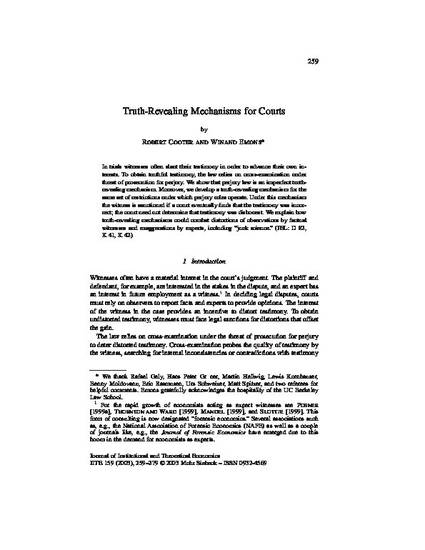
Book
Solomon’s Knot: How Law Can End the Poverty of Nations
(2012)
Abstract
In the modern world, nations are relatively poor because their economies fail to grow. Compared to sustained growth, other sources of wealth are insignificant. Sustained growth comes from innovations like a better computer program in Silicon Valley, an improved assembly line in Sichuan, or a new export market for leather in Swaziland. Whether in technology, organization, or markets, a new idea requires money for its implementation. Uniting ideas and capital is a problem of trust. The innovator must trust the investor not to disseminate the idea, and the investor must trust the innovator not to steal the money. We call this problem “the double trust dilemma of development.” Countries that solve it grow, and countries that fail to solve it stagnate. Solving it requires effective law, especially the law of property, contracts, and business law (corporations, securities, and bankruptcy). We propose a legal theory of growth that focuses on solving the double trust dilemma by effective private and business law. Conversely, we propose a theory of the poverty of nations caused by ineffective private and business law.
Keywords
- law and development,
- innovation,
- dynamic law and economics
Disciplines
Publication Date
2012
Publisher
Princeton University Press
Citation Information
Robert D Cooter and Hans Bernd Schaefer. Solomon’s Knot: How Law Can End the Poverty of Nations. (2012) Available at: http://works.bepress.com/robert_cooter/151/
